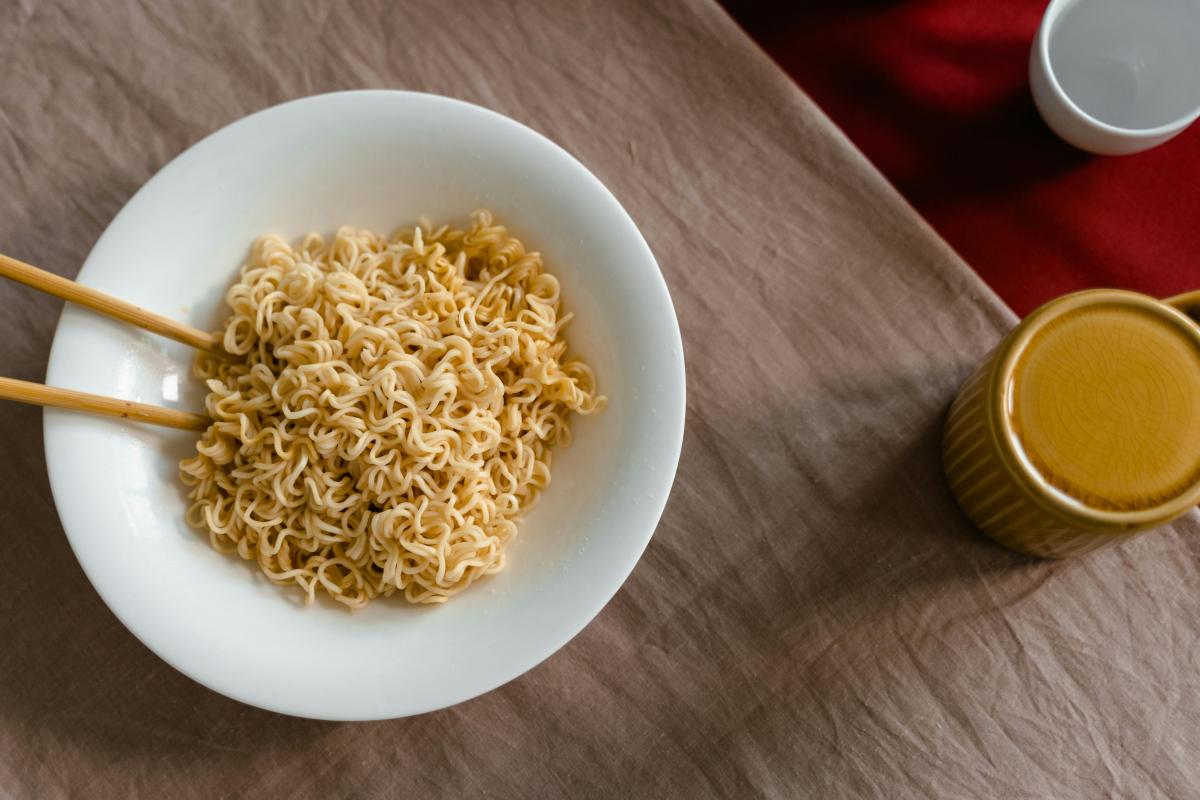In Egypt, Indomie instant noodles have become a staple among school and university students, often seen as a convenient and cheap meal. But a tragic incident in Dakahlia governorate has reignited fears over the product’s safety. Two young girls, Malak and Marwa, died after eating a packet of Indomie, raising public alarm and parental outcry. Yet, despite the public's concern, no decisive action has been taken. Indomie carts still crowd the streets and school gates across Egypt, thriving in the absence of real food safety oversight.
What is Indomie—and What’s in It?
Indomie is a brand of instant noodles that can be prepared in minutes by adding hot water and seasoning sachets. It’s widely popular worldwide for its convenience and flavor. A typical pack contains deep-fried noodles made with palm oil and a mix of artificial seasonings and preservatives, most notably monosodium glutamate (MSG), a flavor enhancer. MSG remains controversial: several studies have linked it to high blood pressure, headaches, toxicity, and even compulsive overeating.
Laboratory tests in various countries have gone further, revealing traces of aflatoxins (a toxic mold), pesticide residues, and even cancer-causing compounds at concentrations that exceed international safety limits. These findings cast a long shadow over the global noodle industry.
Who Makes Indomie—and Who Eats It?
Indomie is manufactured by Indonesia-based Indofood and is produced in over 80 countries. Outside of Asia, Nigeria ranks as one of the largest consumers, with local factories in operation. The brand is also expanding rapidly in the Middle East, particularly in Saudi Arabia, Egypt, and Morocco. With billions of packs sold annually, Indomie ranks among the world’s most consumed packaged foods.
Lebanon: Indomie as a Lifeline Amid Economic Collapse
In crisis-stricken Lebanon, where soaring inflation and poverty have hollowed out household budgets, Indomie has become a go-to meal for countless families, especially among students and Gen Z youth. Priced between $1 and $3, it offers a cheap alternative to increasingly unaffordable meat and vegetables, and doesn’t rely on scarce electricity or cooking gas. For many university students and young workers, it’s a quick fix: just add boiling water and you’re done.
But at What Cost?
To understand the health risks associated with frequent consumption, we spoke to Dr. Bassam Oweidat, a public health and nutrition specialist. “Indomie offers virtually no nutritional value,” he said. “It mixes refined carbs, saturated fats, and chemical additives. MSG alone can irritate the nervous system, elevate blood pressure, and—when consumed regularly—may be linked to cancer risks and cognitive issues.”
Even more worrying, Dr. Oweidat noted, is the habit among youth of eating Indomie raw—straight from the pack. “This increases the chance of food poisoning due to oxidized oils or bacteria,” he warned. “And given the weak oversight on noodle sources and spice ingredients, some products may contain carcinogens unbeknownst to the consumer.”
The Bottom Line: Cheap, Yes—but Not Without a Price
In a region grappling with poverty, time constraints, and the rising cost of living, instant noodles offer undeniable convenience. But behind this comfort food lies an invisible yet growing health threat. Indomie is a cautionary tale of how a low-cost meal can quietly become a “soft death” integrated into our daily lives.
In light of mounting evidence, health and education authorities must act, not just to regulate these products, but to raise awareness and promote healthier, even if less convenient, food alternatives.
Please post your comments on:
[email protected]
 Politics
Politics













